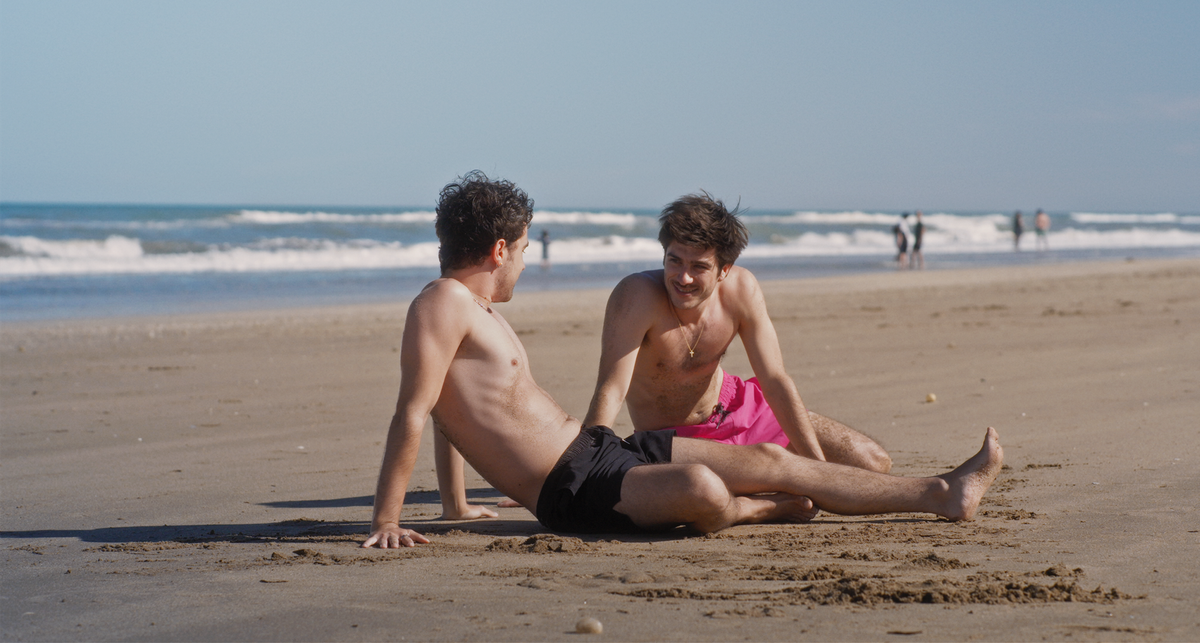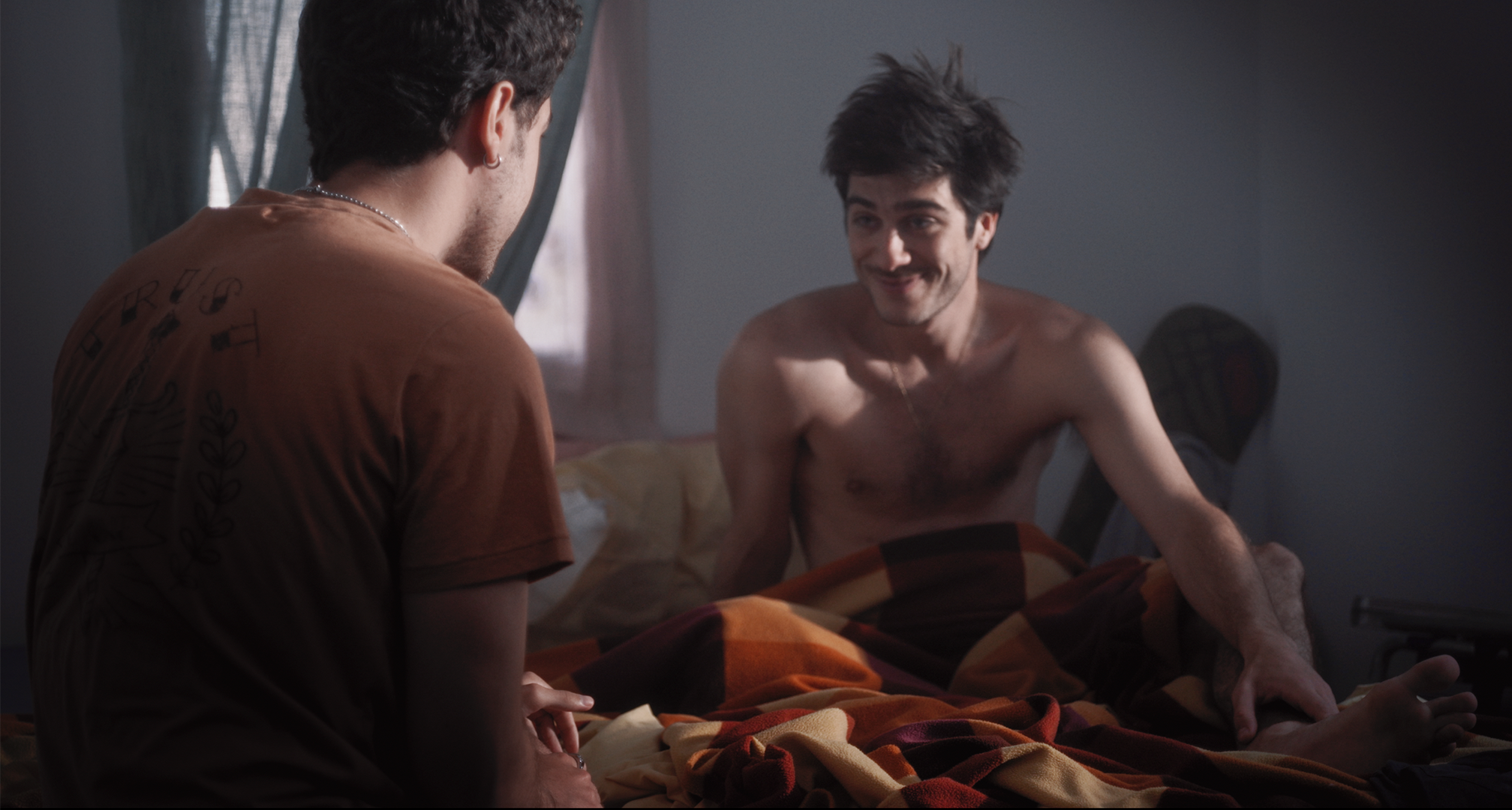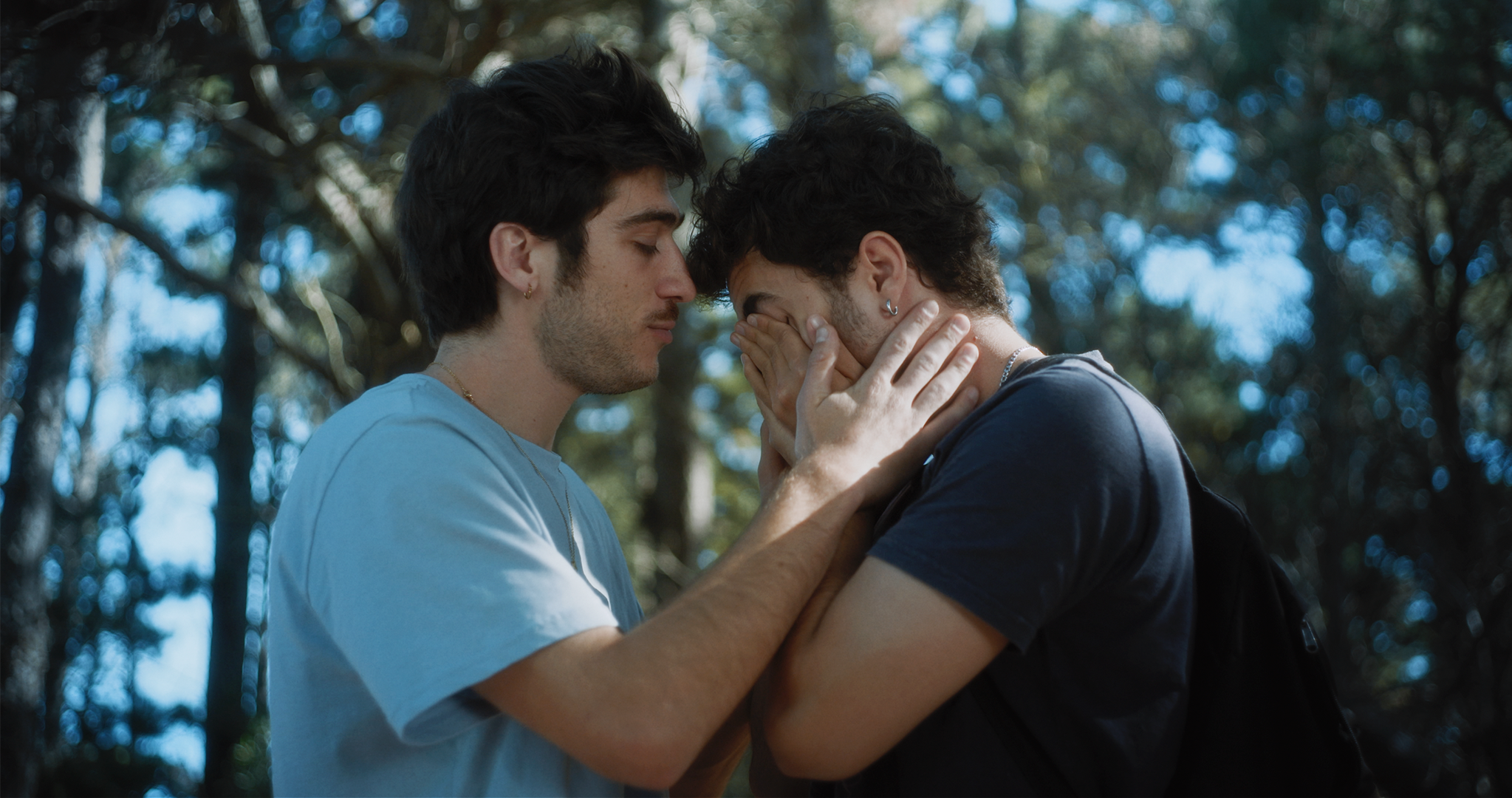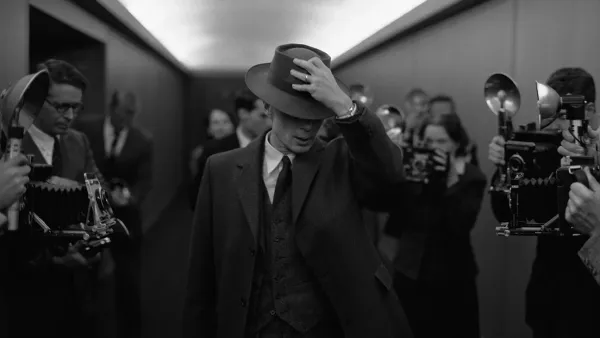The Astronaut Lovers, and the Lost Interview with Marco Berger
A magical Rom-Com, and (thanks to technical difficulties) an interview you will simply have to take my word for...

I want to ask you, candidly – what was the last by-the-book Gay Male Rom-Com that had a happy ending? I'll add a caveat - it can't have judgmental parents, or a throw-away hate crime, or gasp, the jealous or otherwise antagonistic ex-girlfriend.
Friends – I have found you a banger. This absolutely adorable film calls to mind the 'Before' series in its intelligence, tone, and depth (This film is the brother of Before Sunrise, I think. Not the sister.) A comfort movie of the highest order, with a playfulness that was so, so refreshing for this queer cinephile to relax into – it's funny, it's not self-serious in the slightest, and yet has a wealth of sincerity and romance that makes it stand out in the Gay canon.
This is a love story of two childhood friends reunited one summer, who find an undeniable chemistry and bond, and look for a wealth of ways to try to couch it in something less serious. Writer/Director Marco Berger intended for this film to represent "everything that he is" – not least of which, a romantic in the tradition of "an Elizabeth Bennet."
These are merely approximations of his words, as my computer completely quit on me one (1) minute into the interview, and I had to write down what I could remember of his heartfelt sentiment in the 20 minutes I had before my next meeting.
Mr. Berger – I hope I do you justice.
I asked about the lighter tone of The Astronaut Lovers when compared to the Queer Canon, and Berger explained the "By-the-Book Rom-Com" approach of the film as being intentional – and that though we may think this has become normalized or prevalent in recent years, it really hasn't (and, I would say – certainly not at scale).
The fact that you can be happy, carefree, playful, flirty – and consistently so – in a Gay relationship on film is not just relatively new, it's basically unparalleled. This is why I added the caveats at the start of this article – can you remember a film such as that? Maybe you can – but can you remember many?
The film takes a very insular approach to the intimacy between Maxi and Pedro – a slower, more considered, very lucid one. They are entirely within their own world, without the influence of drugs and very little alcohol when all is said and done, and on some level, they know where they are headed – and yet, in a spirit of half-hearted denial, push each other down the path of closeness with a mixture of truth and dare. It's fascinating and brilliant to watch.
Despite this, women do play a key role in Berger's love story here – in a spirit that very much honors the Jane Austen 'meddler' archetype of an 'Emma' – the women around the two lovers facilitate the excuses and permission structure, for specifically Maxi, to lean into the play, the lie, the truth, and uncover his desire.
Berger has (apparently) been criticized for his portrayal of women in his past films, but I saw none of that here. An ex-girlfriend becomes the foundation for their growing closeness (which was well underway before they needed an excuse!), and one of the most tender (and hilarious) scenes is the 'Photo for the Sister,' which I won't spoil here, but that lays the groundwork for both men to come to terms with their blooming romance.

A quick detour to discuss the absolutely fabulous and perfect discussion on Bisexual Men in this film – how men, if they even once cross the "Gay line" in cultures around the world, are never really allowed to return. I feel as if this is the same within Queer Cinema – once someone makes films about Queer characters, there's an expectation of a few specific stories that are allowed to be told, or are worth telling. Maybe that is why a film like this one is so rare – I hope it never has to be rare again.
👀Spoilers Contained Herein...
One brilliant aspect of The Astronaut Lovers was this idea of no external danger. Their friends are immediately accepting, and actually encouraging. Maxi's ex-girlfriend actually broke up with him because he wouldn't have a threesome with another man. At every turn, Berger contradicts the prevailing narrative. It makes the conclusion all the more sweet, and leaves the ping-pong match completely uninterrupted.
Maxi and Pedro's dynamic is brilliantly frustrating – the line between joke, lie, truth, love, dare, and flirtation is smudged beyond recognition, creating this brilliant and realistic ironic sincerity that I noted seemed a very modern romantic sensibility. Lying and joking when you're hiding the honest truth is a very modern, 21st-century way to love someone.
Berger agreed, and it was an intentional choice. He mentioned Freud's study of the case, noting that jokes are often truthful, and can help us express the things we feel are too taboo or too dangerous to speak on. He specifically mentioned the bathroom scene – one of the most romantic in my opinion (the intimacy of the cinematic bathroom!) – as being one example of jokes facilitating a truthful moment.
Maxi and Pedro, despite there being no danger to them but the dangers of bearing your heart to someone, play this game of ping-pong masterfully. The performances of Javier Orán, Lautaro Bettoni, and, in the 'photo for the sister' scene, Ailín Salas – were so naturalistic as to give the impression of improvisation. Yet, it was the joke, the farce of it all, even in this naturalistic performance, that felt so refreshing – the comedy of romantic errors that has been so prevalent (and juicy) in hetero cinema, and found such a brilliant home with these characters.
Berger did mention wishing the ending of the film could have been a bit longer, which I couldn't help but agree with – the final, beautiful reunification of Pedro and Maxi felt all too short. So short, in fact, that I was convinced it would be ripped away from me by some 'It was all a fantasy' type final scene, plunging me back into the world where Gays are destined to be sad, lonely people.
No, The Astronaut Lovers intends to land – and in this sense, can be seen as a powerful statement by the filmmaker on the current and future state of Gay stories. I'll speak for myself – films like this, at risk of using the word "normalization" and having the opposite effect, really expand the imagination, and restructure the storytelling approach around queer people, but especially queer men. My knee-jerk assumption that the ending would be sad speaks volumes – I have spent most of the last year in and out of Queer films at festivals and screenings galore, and like a sponge, the prevailing rhythm I was expecting was a catastrophic one, despite the warmth and sincerity of the entire film that should have led me in the opposite direction.
Finally, the Sophisticulture question – we ask every artist on our podcast (even the ones that never make it to audio!) what piece of work or topic outside of their film they would like to recommend.
After a hilarious mix-up (my fault!) between Ian McKellen and Ian McEwan, Berger recommended the book Black Dogs, as well as mentioning his love for Anora and The Substance (noting the brilliantly manipulative style of storytelling that plays with the viewer's expectations).
In that way, in my opinion, The Astronaut Lovers joins those two films as a peer.





